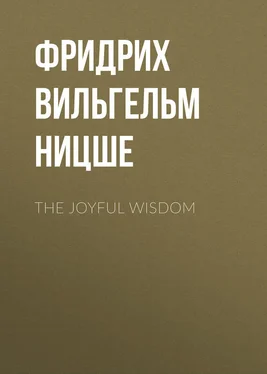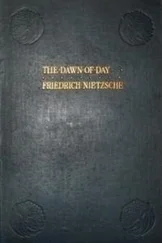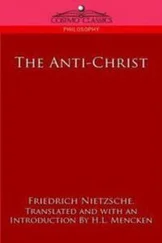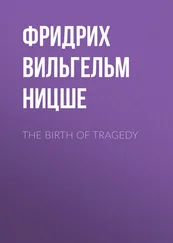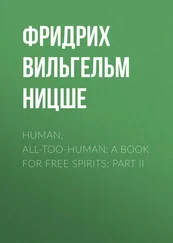Фридрих Ницше - The Joyful Wisdom
Здесь есть возможность читать онлайн «Фридрих Ницше - The Joyful Wisdom» — ознакомительный отрывок электронной книги совершенно бесплатно, а после прочтения отрывка купить полную версию. В некоторых случаях можно слушать аудио, скачать через торрент в формате fb2 и присутствует краткое содержание. Жанр: Философия, literature_19, foreign_antique, foreign_prose, на английском языке. Описание произведения, (предисловие) а так же отзывы посетителей доступны на портале библиотеки ЛибКат.
- Название:The Joyful Wisdom
- Автор:
- Жанр:
- Год:неизвестен
- ISBN:нет данных
- Рейтинг книги:3 / 5. Голосов: 1
-
Избранное:Добавить в избранное
- Отзывы:
-
Ваша оценка:
- 60
- 1
- 2
- 3
- 4
- 5
The Joyful Wisdom: краткое содержание, описание и аннотация
Предлагаем к чтению аннотацию, описание, краткое содержание или предисловие (зависит от того, что написал сам автор книги «The Joyful Wisdom»). Если вы не нашли необходимую информацию о книге — напишите в комментариях, мы постараемся отыскать её.
The Joyful Wisdom — читать онлайн ознакомительный отрывок
Ниже представлен текст книги, разбитый по страницам. Система сохранения места последней прочитанной страницы, позволяет с удобством читать онлайн бесплатно книгу «The Joyful Wisdom», без необходимости каждый раз заново искать на чём Вы остановились. Поставьте закладку, и сможете в любой момент перейти на страницу, на которой закончили чтение.
Интервал:
Закладка:
Friedrich Wilhelm Nietzsche
The Joyful Wisdom / Complete Works, Volume Ten
EDITORIAL NOTE
"The Joyful Wisdom," written in 1882, just before "Zarathustra," is rightly judged to be one of Nietzsche's best books. Here the essentially grave and masculine face of the poet-philosopher is seen to light up and suddenly break into a delightful smile. The warmth and kindness that beam from his features will astonish those hasty psychologists who have never divined that behind the destroyer is the creator, and behind the blasphemer the lover of life. In the retrospective valuation of his work which appears in "Ecce Homo" the author himself observes with truth that the fourth book, "Sanctus Januarius," deserves especial attention: "The whole book is a gift from the Saint, and the introductory verses express my gratitude for the most wonderful month of January that I have ever spent." Book fifth "We Fearless Ones," the Appendix "Songs of Prince Free-as-a-Bird," and the Preface, were added to the second edition in 1887.
The translation of Nietzsche's poetry has proved to be a more embarrassing problem than that of his prose. Not only has there been a difficulty in finding adequate translators – a difficulty overcome, it is hoped, by the choice of Miss Petre and Mr Cohn, – but it cannot be denied that even in the original the poems are of unequal merit. By the side of such masterpieces as "To the Mistral" are several verses of comparatively little value. The Editor, however, did not feel justified in making a selection, as it was intended that the edition should be complete. The heading, "Jest, Ruse and Revenge," of the "Prelude in Rhyme" is borrowed from Goethe.
PREFACE TO THE SECOND EDITION
Perhaps more than one preface would be necessary for this book; and after all it might still be doubtful whether any one could be brought nearer to the experiences in it by means of prefaces, without having himself experienced something similar. It seems to be written in the language of the thawing-wind: there is wantonness, restlessness, contradiction and April-weather in it; so that one is as constantly reminded of the proximity of winter as of the victory over it: the victory which is coming, which must come, which has perhaps already come… Gratitude continually flows forth, as if the most unexpected thing had happened, the gratitude of a convalescent – for convalescence was this most unexpected thing. "Joyful Wisdom": that implies the Saturnalia of a spirit which has patiently withstood a long, frightful pressure – patiently, strenuously, impassionately, without submitting, but without hope – and which is now suddenly o'erpowered with hope, the hope of health, the intoxication of convalescence. What wonder that much that is unreasonable and foolish thereby comes to light: much wanton tenderness expended even on problems which have a prickly hide, and are not therefore fit to be fondled and allured. The whole book is really nothing but a revel after long privation and impotence: the frolicking of returning energy, of newly awakened belief in a to-morrow and after-to-morrow; of sudden sentience and prescience of a future, of near adventures, of seas open once more, and aims once more permitted and believed in. And what was now all behind me! This track of desert, exhaustion, unbelief, and frigidity in the midst of youth, this advent of grey hairs at the wrong time, this tyranny of pain, surpassed, however, by the tyranny of pride which repudiated the consequences of pain – and consequences are comforts, – this radical isolation, as defence against the contempt of mankind become morbidly clairvoyant, this restriction upon principle to all that is bitter, sharp, and painful in knowledge, as prescribed by the disgust which had gradually resulted from imprudent spiritual diet and pampering – it is called Romanticism, – oh, who could realise all those feelings of mine! He, however, who could do so would certainly forgive me everything, and more than a little folly, boisterousness and "Joyful Wisdom" – for example, the handful of songs which are given along with the book on this occasion, – songs in which a poet makes merry over all poets in a way not easily pardoned. – Alas, it is not only on the poets and their fine "lyrical sentiments" that this reconvalescent must vent his malignity: who knows what kind of victim he seeks, what kind of monster of material for parody will allure him ere long? Incipit tragœdia, it is said at the conclusion of this seriously frivolous book; let people be on their guard! Something or other extraordinarily bad and wicked announces itself: incipit parodia, there is no doubt…
– But let us leave Herr Nietzsche; what does it matter to people that Herr Nietzsche has got well again?.. A psychologist knows few questions so attractive as those concerning the relations of health to philosophy, and in the case when he himself falls sick, he carries with him all his scientific curiosity into his sickness. For, granting that one is a person, one has necessarily also the philosophy of one's personality; there is, however, an important distinction here. With the one it is his defects which philosophise, with the other it is his riches and powers. The former requires his philosophy, whether it be as support, sedative, or medicine, as salvation, elevation, or self-alienation; with the latter it is merely a fine luxury, at best the voluptuousness of a triumphant gratitude, which must inscribe itself ultimately in cosmic capitals on the heaven of ideas. In the other more usual case, however, when states of distress occupy themselves with philosophy (as is the case with all sickly thinkers – and perhaps the sickly thinkers preponderate in the history of philosophy), what will happen to the thought itself which is brought under the pressure of sickness? This is the important question for psychologists: and here experiment is possible. We philosophers do just like a traveller who resolves to awake at a given hour, and then quietly yields himself to sleep: we surrender ourselves temporarily, body and soul, to the sickness, supposing we become ill – we shut, as it were, our eyes on ourselves. And as the traveller knows that something does not sleep, that something counts the hours and will awake him, we also know that the critical moment will find us awake – that then something will spring forward and surprise the spirit in the very act, I mean in weakness, or reversion, or submission, or obduracy, or obscurity, or whatever the morbid conditions are called, which in times of good health have the pride of the spirit opposed to them (for it is as in the old rhyme: "The spirit proud, peacock and horse are the three proudest things of earthly source"). After such self-questioning and self-testing, one learns to look with a sharper eye at all that has hitherto been philosophised; one divines better than before the arbitrary by-ways, side-streets, resting-places, and sunny places of thought, to which suffering thinkers, precisely as sufferers, are led and misled: one knows now in what direction the sickly body and its requirements unconsciously press, push, and allure the spirit – towards the sun, stillness, gentleness, patience, medicine, refreshment in any sense whatever. Every philosophy which puts peace higher than war, every ethic with a negative grasp of the idea of happiness, every metaphysic and physic that knows a finale, an ultimate condition of any kind whatever, every predominating, æsthetic or religious longing for an aside, a beyond, an outside, an above – all these permit one to ask whether sickness has not been the motive which inspired the philosopher. The unconscious disguising of physiological requirements under the cloak of the objective, the ideal, the purely spiritual, is carried on to an alarming extent, – and I have often enough asked myself, whether on the whole philosophy hitherto has not generally been merely, an interpretation of the body, and a
Читать дальшеИнтервал:
Закладка:
Похожие книги на «The Joyful Wisdom»
Представляем Вашему вниманию похожие книги на «The Joyful Wisdom» списком для выбора. Мы отобрали схожую по названию и смыслу литературу в надежде предоставить читателям больше вариантов отыскать новые, интересные, ещё непрочитанные произведения.
Обсуждение, отзывы о книге «The Joyful Wisdom» и просто собственные мнения читателей. Оставьте ваши комментарии, напишите, что Вы думаете о произведении, его смысле или главных героях. Укажите что конкретно понравилось, а что нет, и почему Вы так считаете.
